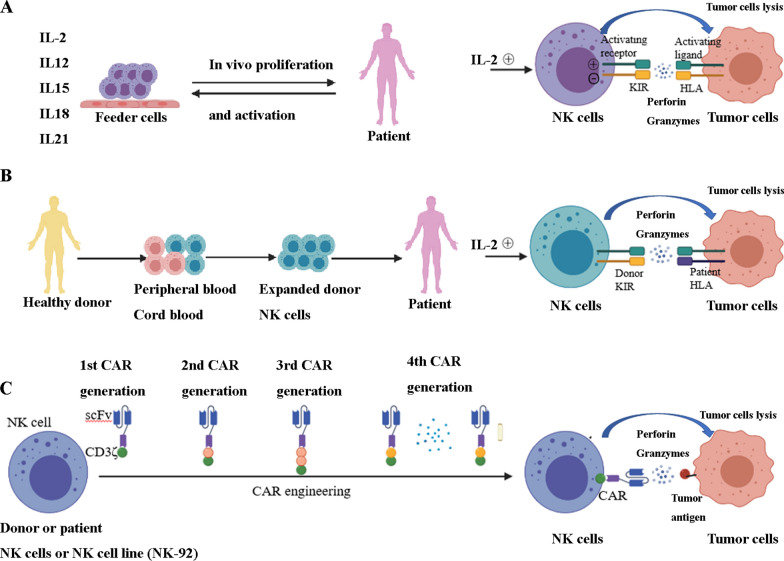Fig. 4.
NK cell-based therapeutic strategies. A Autologous NK cell transfer:Cytokines IL-2, IL-12,IL-15, IL-18, as well as IL-21 in vitro can stimulate NK cells from patients’ blood and promote in vivo NK-cells proliferation and activation after NK cells are infused into cancer patients. NK cells release perforin, as well as granzyme, to cause apoptosis of tumor cells after they contact and recognize receptor on the tumor cells. B Allogeneic NK cell transfer: NK cells from healthy donors’ peripheral cord blood expand in vitro and are infused into cancer patients. NK cells with donor KIR release perforin, as well as granzyme, to cause apoptosis of tumor cells after they contact and recognize HLA receptor on the tumor cells. If KIR-ligand mismatch, no negative signal exists. C CAR-engineered NK cells: There are four different generations of CARs and they deliver stimulation signals to NK cells. Through genetic engineering modification, CAR can bind to tumor specific antigens are expressed on the surface of NK cells. After transfusion, tumor cells with specific antigens can be specifically recognized and immune responses can be triggered to achieve the purpose of tumor cell clearance

